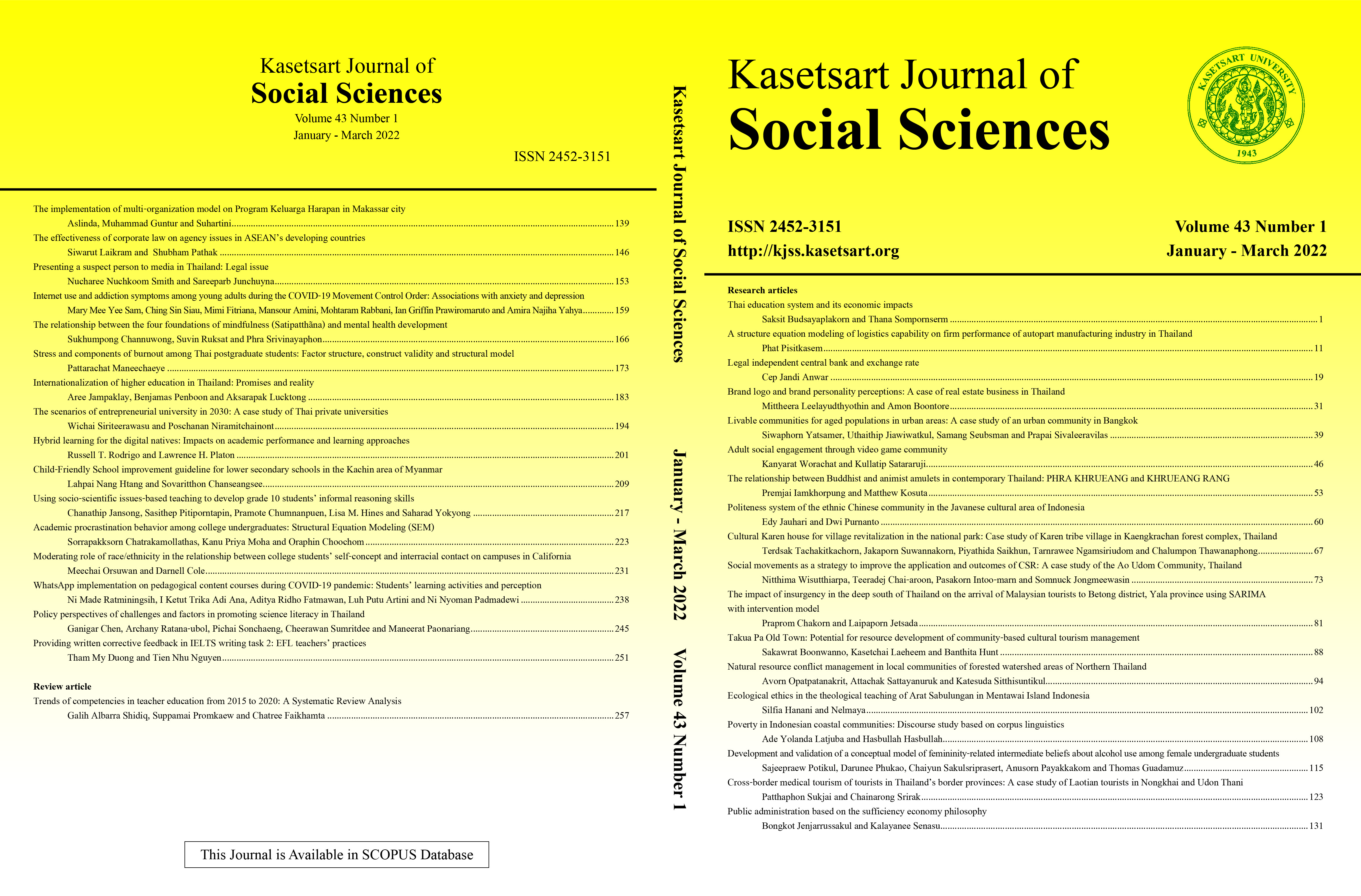Policy perspectives of challenges and factors in promoting science literacy in Thailand
Keywords:
education policy, lifelong learning, science education, science literacy, ThailandAbstract
Scientific literacy is not only a key indicator of national competitiveness. It is also an attribute of a quality citizens for national well-being. However, many countries, including Thailand, still struggle to find ways to ensure that their citizens become scientifically literate. This paper explores opinions from eleven policy level experts through in-depth interviews about public science literacy in Thailand. This includes its situation, the challenges of the ecosystem to promote public science literacy and possible key areas for improvement. The study revealed that science is well-received as an important discipline, especially in formal education, but less considered as providing tools for quality living. The major challenges in enhancing public science literacy include outdated curricula, diverse student assessment standards, lack of long-term national policy, quality of science teachers, low involvement of scientists and public attitude toward lifelong learning. Key success factors suggested are: (1) promoting long-term government policy in public science literacy; (2) integrating work between various education systems; (3) engaging the private sector and scientists in promoting science literacy; and (4) cultivating lifelong learning attitude. Other proposed ideas include creating a science learning platform, providing customized learning and knowledge management, promoting local community involvement in science education, and distributing more science museums throughout the region.
Downloads
Published
How to Cite
Issue
Section
License

This work is licensed under a Creative Commons Attribution-NonCommercial-NoDerivatives 4.0 International License.
This is an open access article under the CC BY-NC-ND license http://creativecommons.org/licenses/by-nc-nd/4.0/










